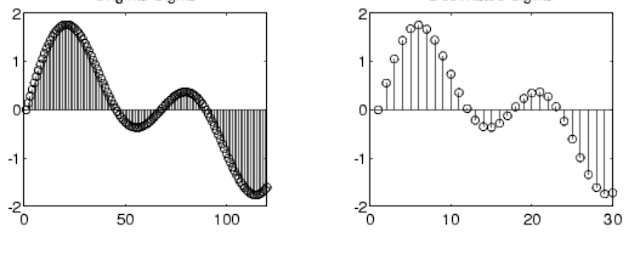Past participles of verbs are often spelled differently than their homophones and homonyms. Whether the farmer baled hay or the sailor bailed water, they both pronounced it the same, but if they wrote someone about the experience, they spelled it differently. Sometimes they aren't even pronounced the same. The simple past tense of "break" is "broke," whereas the simple past tense of "brake" is "braked." The car braked and the windshield broke. The same is true of the homonyms for "lie." She lay in my bed and lied to me. It’s not true of King Alulim, who some Sumerian texts claim to have been at the throne during the time of Noah’s flood. He reigned until it rained. Homophones in this case. A tangentially related matter is the word "hang," whose past participle changes once it is a means of execution—a picture is hung, a man is hanged. That's gotten a little fuzzy in recent years, but the classic western hangin' judge utterance (and who would know better) is "hanged."
The Grammar Dance will appear occasionally, and will seek to illuminate some language oddity, or perhaps unbutton some thorny grammatical or usage quirk embedded in our English language. These entries will be brief and easily digestible, and I hope they will become part of your reading.
Saturday, December 12, 2020
Verb-verb homophones and homonyms and the past participles who love them
Isaac Parker, the "hanging judge."
Sunday, July 26, 2020
A brief history of the term, "social distancing."
Like so many catch phrases in common American parlance, “social distancing” has its roots in elitism and by inevitable extension, racism. The term first appeared in late nineteenth century English newspapers as a means of describing the degrees to which people would countenance exposure to persons of lower ilk. It was a detached and dispassionate expression whose utterer patted himself on the back by choosing it, in his estimation graciously avoiding less charitable descriptions of the subjacent classes.
It was especially employed in Romeo and Juliet marriages, unions objected to over history, ethnicity, wealth or any of the other many enemies of love. “Social distancing” also became an early 20th century euphemism for segregation, used by American newspapers wishing to ease northeast liberals’ cognitive dissonance about living in an apartheid state.
This usage was ideal for the roaring ‘20s, whose blameless separatism was its very character. Indeed, in 1925, “social distancing” graduated from watered-down genteel racism to legitimate science with the introduction of the Social Distance Scale, a tool developed by sociologist Emory S. Bogardus, that measures people’s relative discomfort with other people across marriage, friendship, employment, nationalism and other categories.
Social distancing as a tool to fight pandemics is a 21st century innovation. Much credit can be claimed by the George W. Bush administration for reacting to the SARS pandemic of 2004 with an open-mindedness to the idea of social distancing as a potentially effective means of mitigating its spread. It was the weapon used by medieval civilizations and our own in 1918, but the prevailing medical opinion at the time was that it was impractical in a modern world and in the end, largely ineffective. This has since been proven untrue. In an essential research paper on the matter published in 2005, Targeted Social Distancing Designs for Pandemic Influenza, Robert J. Glass’ interdisciplinary team concluded that, “targeted social distancing strategies can be designed to effectively mitigate the local progression of pandemic influenza without the use of vaccine or antiviral drugs.”
By 2004, the CDC was using “social distancing” to describe the minimization of human contact across society. The current push from the CDC is to replace that usage with “physical distancing,” which not only more accurately describes the strategy, it is absent the racist, elitist, nationalist baggage of its parentage. University of Chicago doctoral candidate Lily Scherlis has made a small splash in the word-nerd world with her research on the term, and for the deep dive, she is your go-to.
Her research pegs a first English usage in 1831 in a letter written by a friend of Napoleon Bonaparte. As Napoleon won more battles, conquered more territory and became more and more lauded in French society, Nap’s old buddy lamented a growing sense of apartness between the two men, a phenomenon he described as “social distancing.” The phrase has had quite a journey. It began with the loss of a friend, found its way into the gritted teeth of embittered snobs and racists who might have preferred “bums” and the “N” word, next into social science laboratories, and lastly into the mouths of epidemiologists, virologists, immunologists and every English-speaking person who breathes air and wonders how in the hell we let this happen.
Saturday, July 18, 2020
Use of the phrase "no worries" shows a worrisome increase
The phrase, “no worries” is nothing new, but it does seem to me to be something newly prevalent. It has its origins in 1960s Australia as a general expression of Australia’s famously relaxed and casual disposition. It so captured the Australian spirit, it was even adapted as Australia’s national slogan for the year 1978.
Australian surfer culture embraced it, and one theory is that wave riders from the US who had traveled to experience the Antipodean angle brought it back with them. Early documented instances of American use of the phrase in newspapers and magazines begins to percolate in the 1980s, mostly in California, but then in 1986, Crocodile Dundee blew it wide open in the US with his signature phrase, “No worries, mate.”
Usage shoots upward from that point, and then with Hakuna Matata in 1994, any hopes it would magically disappear were destroyed, probably forever. The children of the Lion King era are now butchers and bakers, doctors and lawyers, cops and clergy. They’re everywhere you look, and any one of them is likely to say to you at the end of an otherwise pleasant encounter, “No worries.”
I got one with a bagel this morning as a substitute for, “You’re welcome” after I thanked the young man for my change. He was about 18 years old. This leads me to believe that the children of the children of the Lion King generation are learning it at home.
In my opinion, words that express degrees of either agony or ecstasy should fairly match the experience they describe. Particularly ironic hyperbole is of course fine. If pulling up to free time on a parking meter is awesome or amazing, what next level do you have to describe the birth of your daughter?
So it is with "no worries," and for that reason, it's a miss for me in this usage. I didn’t expect any worries in receiving either the bagel or the change, and wouldn’t have even thought any possible in so mundane a transaction until he got me thinking about it. His use of “no worries” here was fungible with “de nada,” “my pleasure,” “certainly,” “anytime,” or any number of similarly appreciative phrases. I shoved two dollars into his tip jar and he said, “Thank you.”
I said, “No worries.”
Friday, May 29, 2020
Chauvin: the etymology of a murdering cop
Just a little language stuff regarding Officer Chauvin, formerly of the Minneapolis Police Department. The word "chauvinist," commonly meaning one who condones sexist actions and attitudes, is derived from "chauvin," a French word that was in turn coined from the name of Nicolas Chauvin. Chauvin was a notoriously bellicose and belligerent hyper-nationalist who was a prominent figure in the French First Republic. A "chauvin" in French is an excessively patriotic person. Nicolas Chauvin was a busy finger-pointer in the Reign of Terror, a period in France of post-revolutionary gusto that led many free-thinking newspaper editors, political rivals, private citizens and more up the guillotine steps. Chauvin.
Thursday, April 2, 2020
"Decimate" is a metaphor built into a word
The word “decimate” in its most literal sense means to reduce by a factor of ten. “The previous record of initial jobless claims was decimated by this week’s statistics.” After the recession that followed the housing collapse of 2008, initial jobless claims totaled around 695,000. That record was eclipsed tenfold this week with initial jobless claims totaling around 6,648,000.
Practically speaking, the word “decimate” is used metaphorically almost every time it is invoked. Even in the above example, while eerily close to being exact, the new initial jobless claims figure doesn’t quite decimate the old record. “Decimate” has at its root a mathematical expression, and mathematics is predicated on precision. While this week’s initial jobless claims number doesn’t precisely decimate the old record, it dwarfs it to a rate that makes the use of “decimate” perfectly appropriate here.
Were its usage restricted only to matters of moving the decimal point to the left (notice the identical root word in “decimal”), it would hardly get used at all. It’s perfectly acceptable to use “decimate” in the context of “by a large amount,” and in most dictionaries, indeed serves as the primary definition.
Subscribe to:
Posts (Atom)




